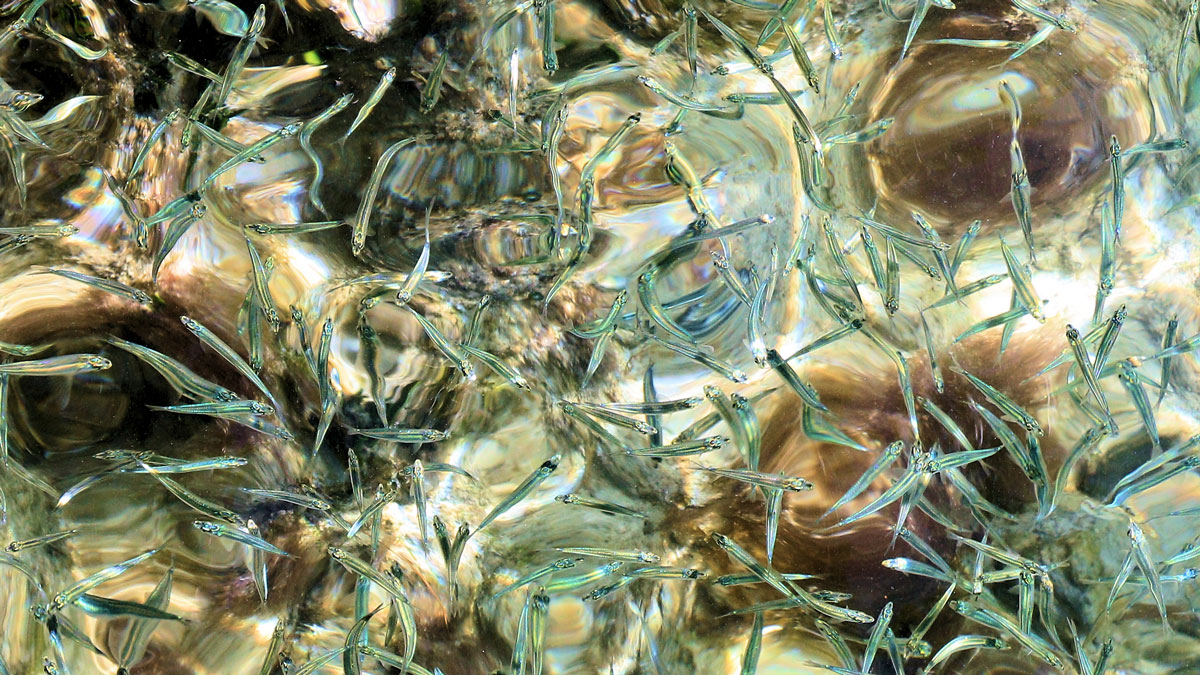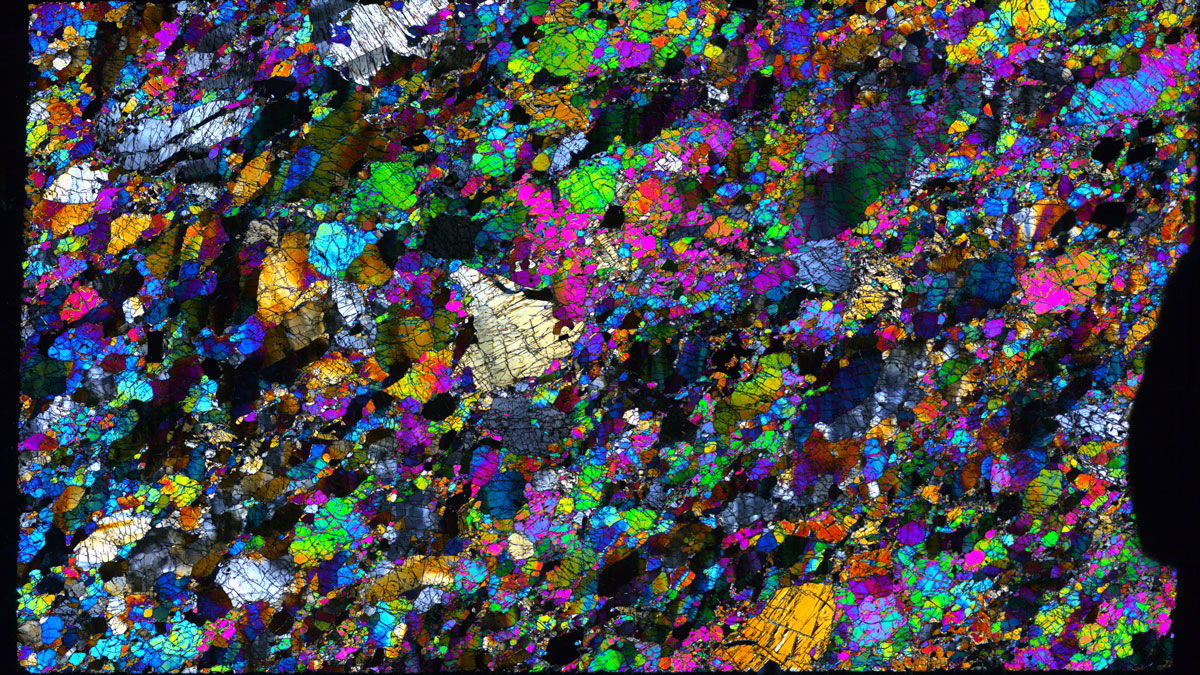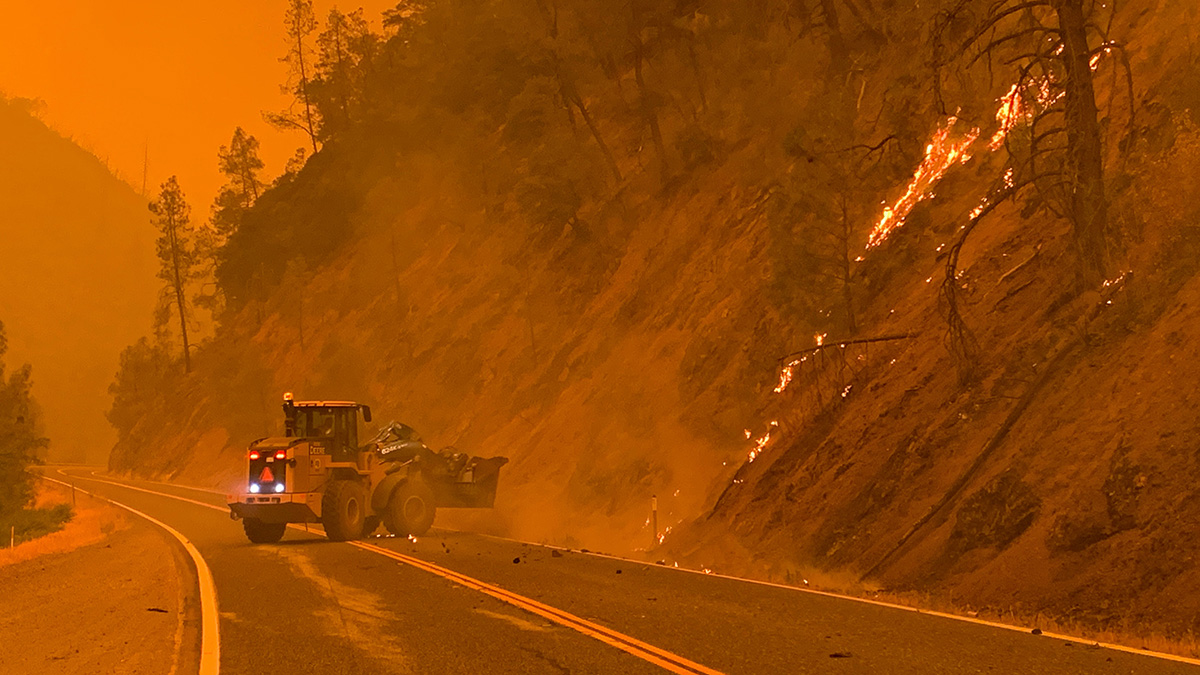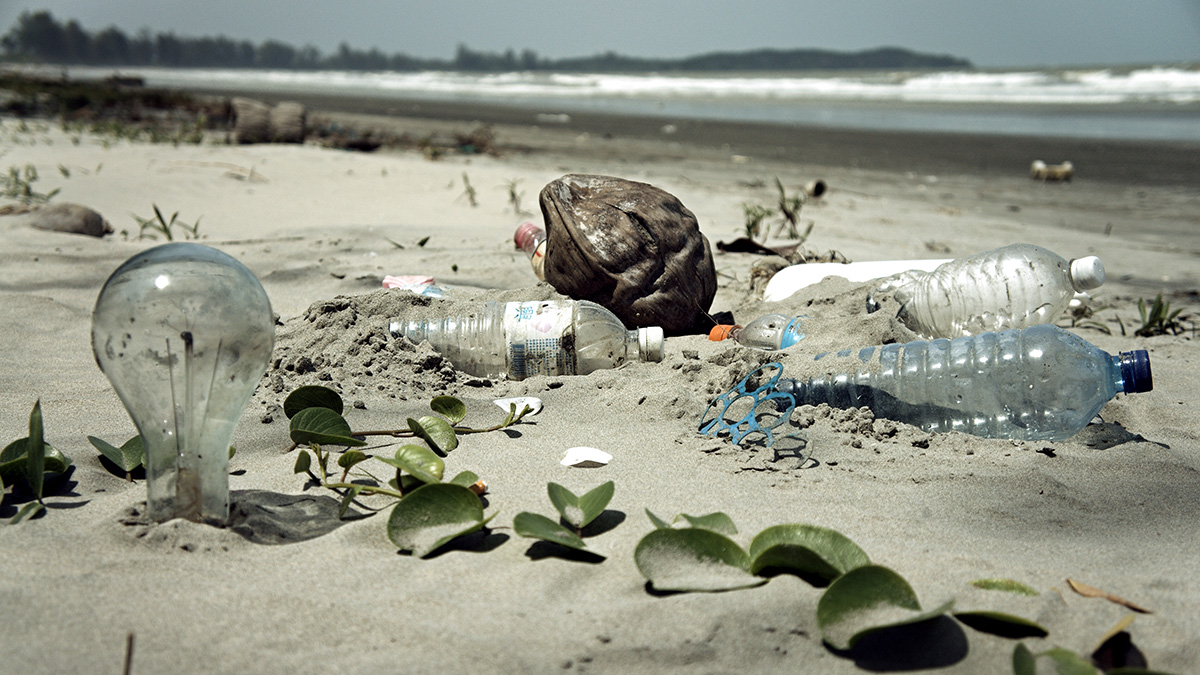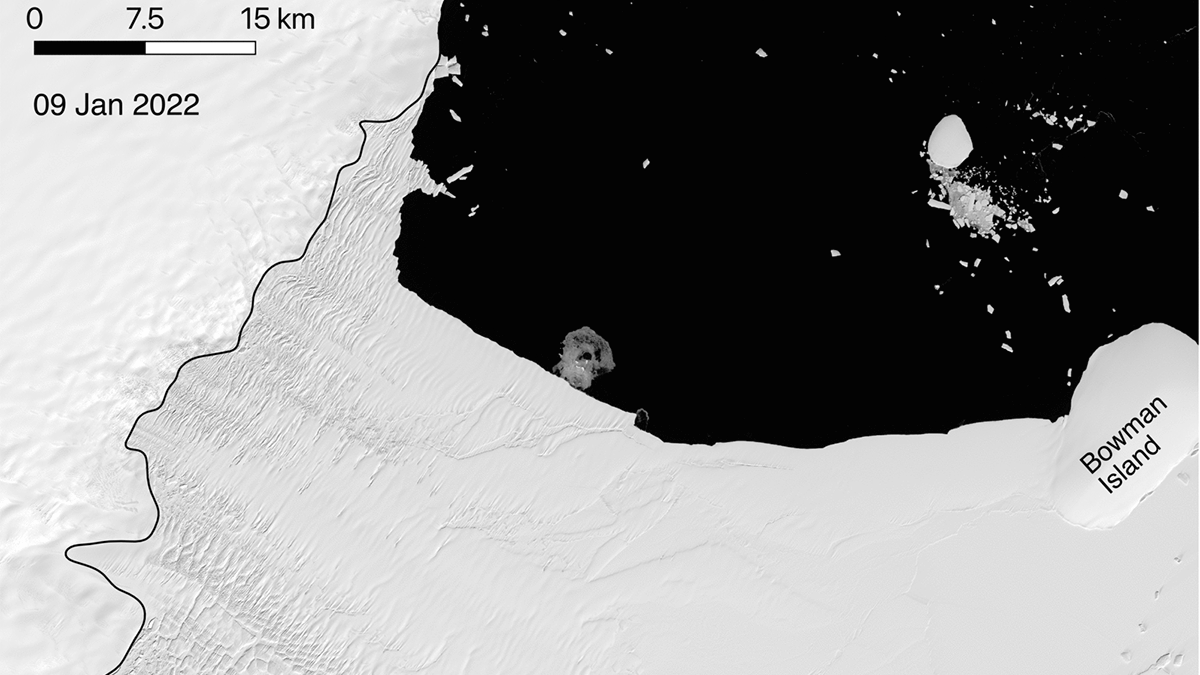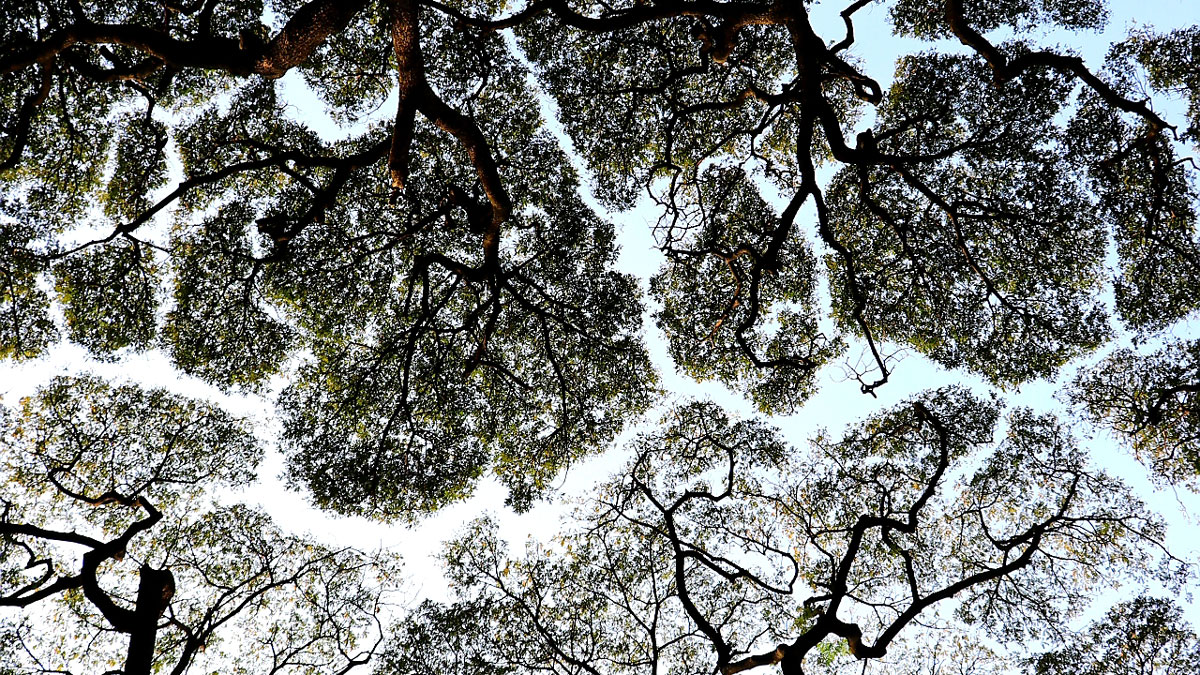Los bosques son “esencialmente sistemas de aire acondicionado” gracias a procesos biofísicos como la evapotranspiración y la rugosidad del dosel forestal.
News
Tiny Creatures May Play a Difficult-to-Detect Role in Ocean Mixing
As an idea that began as a joke, critter-driven ocean mixing has long been controversial. Now scientists have caught spawning anchovies causing turbulence and stirring the sea.
Muography Array Under Tokyo Bay Spots Meteotsunami Waves
A new study shows how muons can be used to study tide and wave phenomena, helping secure coastal communities.
Groundwater Flow May Contribute to Submarine Permafrost Thaw
New, detailed surveys from the Beaufort Sea reveal a seafloor depression the size of a city block associated with permafrost thaw and likely influenced by the movement of groundwater below.
Million or Billion? Narrowing Down the Age of Mantle Processes in New Guinea
Mantle rocks in Papua New Guinea contain curious geochemical signatures that scientists have traditionally interpreted as evidence of billions-year-old melting. New evidence suggests otherwise.
Lunar Soil Can Grow Plants
Plants grown in lunar regolith collected by Apollo missions successfully grew from seed to sprout, lending insight into future lunar agriculture prospects.
Wildfire, Drought, and Insects Threaten Forests in the United States
Western forest managers face a catch-22: They can keep carbon sequestered in trees by reducing controlled burns, but that creates denser forests at greater risk of going up in uncontrolled flames.
Microscopic Hitchhikers Found on Deep-Sea Plastic
Are bacteria hailing a ride on plastic 2,000 meters deep?
Una nueva pista sobre el colapso de la plataforma de hielo antártica
Un tipo particular de tormenta coincidió con 13 de los 21 eventos recientes de desprendimiento en la Antártida.
Open and Fair Data in Tropical Forests
People who gather ground data on tropical forests are highly disadvantaged compared to the users of such data. A new paper suggests long-term collaborations as a path forward.


